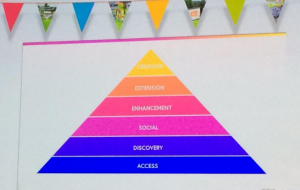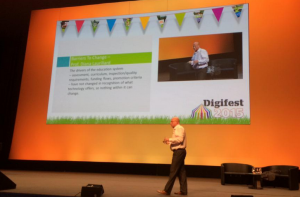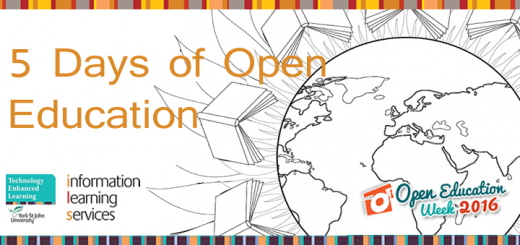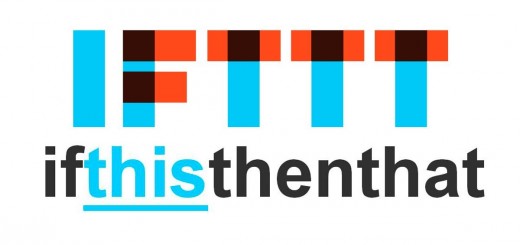JISC Digifest 2015 (Day 1 round-up)
 Earlier this week, I was fortunate to attend the JISC Digifest conference at the International Convention Centre, Birmingham (9-10 March). JISC provides advice, content, research and IT services for UK education and research providers. The conference is aimed at education sector leaders, academics, teachers, policy makers, learning technologists and library professionals – anyone with an interest and a stake in digital education and research.
Earlier this week, I was fortunate to attend the JISC Digifest conference at the International Convention Centre, Birmingham (9-10 March). JISC provides advice, content, research and IT services for UK education and research providers. The conference is aimed at education sector leaders, academics, teachers, policy makers, learning technologists and library professionals – anyone with an interest and a stake in digital education and research.
Tim Kidd (Executive Director of Jisc Technologies) introduced this second ever Jisc Digifest, encouraging us to commit to the conference theme of “Connect More”. Professor Martyn Harrow (Jisc Chief Executive) officially launched proceedings with a reminder that JISC is funded by and made up of FE and HE partners, and it is precisely for these partners that the organisation exists. The theme of being better connected, he says, also references the need for FE and HE institutions and partners to work collaboratively. We are generally seeking similar solutions to shared challenges, and wasting resources by duplicating projects. JISC aims to bridge the gaps between the various institutions and bodies to ensure efficiencies and a shared benefit from project outcomes. Professor Harrow welcomed our first keynote speaker, Simon Nelson, to the stage.
Keynote – Simon Nelson, FutureLearn (@urbangenie)
Simon began by recounting his professional journey in digital education from his start with BBC in 1997, when there was much discussion about whether web would mean the end of radio, to his current role as CEO of a UK MOOC platform. Rather than contributing to the death of radio, his work involved enhancing BBC’s radio offering by establishing digital, on-demand channels. Similarly, Simon has led on developing BBC’s i-player before joining FutureLearn – a private company owned by The Open University. Much has been made of the potential role of MOOCs in the ‘death of the University’, but Simon says this focuses on a short-term impact rather than the larger issue – the internet and the role of internet in education. Simon believes the University is a strong enough institution to adapt and strengthen in the wake of the internet’s influence on education. He described the six-part framework he has used in similar situations – the progression to digital TV and radio – and which he uses to outline the educational opportunities afforded by an initiative like FutureLearn.
Access – Discovery – Social – Enhancement- Extension – Creation
 Simon pointed to the 1million+ learners accessing courses from 19 partner international partner institutions (with 9 new partners announced at Digifest) as evidence of the increased openness of education to new, returning or continuing learners. To punctuate his point, Simon quoted grateful feedback from an Ebola treatment worker in Sierra Leone who, with forty of his colleagues and over 20,000 international participants, had completed an Ebola MOOC led by a prominent scientist in the field. In a brief insight into their business model, he mentioned Futurelean’s aim to optimise the outcome for their partners by introducing learners to institutions with whom they might then continue on to formal study. Discovery is key to the ‘open’ element of MOOCs – FutureLearn are opening up more of their partners’ course content to web search, increasing its visibility and lasting utility. Simon emphasised the importance of social interaction to the MOOC learning model – discussion forums, learners’ profile pages, social media are key to establishing a sense of interconnectedness and to facilitating peer learning. Enhanced social functionality is a priority in upcoming FutureLearn platform development. Enhancing learners’ engagement with the content is another focus and the company is working with institutions and educators to enhance engagement through storytelling. A quarter of FutureLearners have been eligible to extend their experience by paying for a MOOC statement of participation, having completed more than half of the activities on a course. Other revenue models are being explored to create progression from a free MOOC into employment. Finally, Simon reminded us that MOOCs are not merely about passive receipt of information, they are about creation. Learners are creating photographs, writing code, composing music, writing stories etc.
Simon pointed to the 1million+ learners accessing courses from 19 partner international partner institutions (with 9 new partners announced at Digifest) as evidence of the increased openness of education to new, returning or continuing learners. To punctuate his point, Simon quoted grateful feedback from an Ebola treatment worker in Sierra Leone who, with forty of his colleagues and over 20,000 international participants, had completed an Ebola MOOC led by a prominent scientist in the field. In a brief insight into their business model, he mentioned Futurelean’s aim to optimise the outcome for their partners by introducing learners to institutions with whom they might then continue on to formal study. Discovery is key to the ‘open’ element of MOOCs – FutureLearn are opening up more of their partners’ course content to web search, increasing its visibility and lasting utility. Simon emphasised the importance of social interaction to the MOOC learning model – discussion forums, learners’ profile pages, social media are key to establishing a sense of interconnectedness and to facilitating peer learning. Enhanced social functionality is a priority in upcoming FutureLearn platform development. Enhancing learners’ engagement with the content is another focus and the company is working with institutions and educators to enhance engagement through storytelling. A quarter of FutureLearners have been eligible to extend their experience by paying for a MOOC statement of participation, having completed more than half of the activities on a course. Other revenue models are being explored to create progression from a free MOOC into employment. Finally, Simon reminded us that MOOCs are not merely about passive receipt of information, they are about creation. Learners are creating photographs, writing code, composing music, writing stories etc.
These six aspects – allowing access, increasing discoverability, encouraging social learning, enhancing engagement, extending opportunities for learning, and facilitating creation – also apply to the creation of on-campus course experiences and Simon ended his keynote on an optimistic note: MOOCs are not the end of the University, but an amazing opportunity for them to reinvent their role in society.
From Mobile Device Policy to BYOD
Andrew Cormack (Chief Regulatory Adviser, JISC) (@Janet_LegReg)
For my first parallel session, I went along to hear Andrew Cormack’s workshop on moving beyond mobile device policy to catering for Bring Your Own Device (BYOD). Andrew points out that while ‘de jure’, formalised BYOD policies are still rare, in reality, BYOD is already widespread and ‘sanctioned’ via de facto policies – for example, by facilitating University email access via mobile devices. The opportunities for learners and staff are numerous: familiarity, flexibility, convenience, increased productivity. Worryingly though, Andrew points to BT’s 2014 report on IT decision makers’ attitudes to device security which found that 81% of responding staff do not take their device security seriously. Institutions’ staff and students’ interests are aligned when it comes to securing devices, so Andrew points to the BYOD agenda as an opportunity to have an essential device/internet security conversation and to increase people’s sense of responsibility with their devices and data. He ends with four suggestions for going forward:
- Review existing measures for mobile devices – what are people already allowed to do by virtue of de facto policies
- Prepare to support device owners
- Motivate devices owners to improve mobile security
- Design for BYO-by default – it already happens so expect people to arrive for support and infrastructure rather than scrambling to add it on later.
Mobile Learning in Practice
Tracey Duffy and Steve Hull (Digital Media Advisers, JISC); Dr Tarsem Cooner, University of Birmingham, Qingqi Wang, University of Nottingham; Donald McLean, Perth College UHI; Jo Burbridge, Lewisham and Southwark College
Next up was the launch of the JISC Mobile Learning Infokit. The toolkit is a practical guide – including video case studies – for institutions and academics wanting to integrate mobile devices into their teaching and learning environments. It’s a detailed reference resource which will be relevant no matter what stage you are at with implementing mobile learning practice, but there is also a quick guide on engaging students with mobile learning available if the toolkit is too overwhelming an introduction! As a follow-up, there was a also an mobile app showcase by educators who are using/creating apps suitable for FE and HE students. Amongst the apps on show were:
- Social Work social media app: Developed by Social Work lecturer and computer programmer, Dr Tarsem Singh Cooner (University of Birmingham), this app uses a games-based approach to encourage social work students to work-through and reflect upon a series of ethical dilemmas in the use and place of social media in their profession.
- E-lecture Producer app: This app was developed by Dr Qingqi Wang (University of Nottingham) to allow tutors to easily transform existing PowerPoint presentations or PDF slides into an auto-played, HTML presentation. The user can edit the content of each slide and record voice-over slide by slide. This separation means you can change the transcript and voiceover for particular slides without re-recording the entire voice track. The finished file can be exported and embedded into Moodle.
-
Socrative: Many York St John staff are already using this free app to increase in-class engagement or elicit feedback. Socrative is ideal for interaction within classrooms. It allows you to ask questions in real time via Single Question Activity, or by creating quizzes beforehand and running it during class. Students anonymous answers can be displayed in real-time at the front of the room and prompt discussion. Using the Space Race feature, students can also be assigned to groups and work in competition with other teams to complete quiz questions. The app can run from Apple and Android devices, or it can be used without an app via the web-based version.
What Does a Digitally Capable Institution Look Like?
Sarah Davies (Head of Change Implementation Support, JISC); Gillian Fielding and Rebecca McCready (UCISA)
Sarah, Gillian and Rebecca posed a familiar question at Digifest: Do you think there is a digital skills crisis looming in the UK? The audience largely agreed with the position of the recently published House of Lords’ Digital Skills Committee report which found that UK universities have not responded to the urgent need to upskill in order to meet current and future needs of digital life and employment. This session reported the outcomes of the UCISA (Universities and Colleges Information Systems Association) 2014 Digital Capabilities Survey that focused on addressing precisely this issue. A key finding of the study – which looked at how UK HE institutions are preparing staff to work effectively in a digital environment – was the need to take whole-institution approach to tackling the challenge. The myriad of roles that have a stake in enhancing student and staff digital literacies range from librarian and digital pedagogy advisors to student ambassadors, but the greatest success of digital literacy projects has unsurprisingly come from institutional collaborations. On that note, the speakers also reiterated a need to invest in cross-university projects and initiatives, citing the duplicated effort and frameworks resulting from 20 separate digital literacy projects being undertaken at the 63 respondent institutions. We were asked to pick our top priorities from a list of emerging recommendations to universities and colleges formulated from the findings of this study and the JISC Building Digital Capabilities project. Delegates voted unanimously that securing senior management buy-in for a digital change agenda was the most pressing priority.
What the learners say: FE learners’ expectations and experiences of technology
Sarah Knight (JISC); John Webber (Professional Learning and Development Manager, Sussex Downs College); Chris Fuller, Jordan Holder and Tyler Bond (Learners – all Sussex Downs College)
Sarah Knight kicked off this session on the findings from the FE strand of JISC’s Digital Student Project which looks at students’ expectations of technology in Higher and Further Education. This project’s importance was neatly summarised by a participant quote: “Too often we try and guess what our student expectations will be and too often we get things wrong“. The project aims to help institutions to monitor students’ expectations around educational technology and produced a literature review and 12 focus groups with 220 FE learners. The focus group card sorts and student voice poster resources are publicly available for those wanting to conduct their own research or spark conversations on students’ digital expectations. The findings reminded us that students are not homogenous and their use of and attitudes towards technology vary from ‘unconnected and vulnerable’ to ‘intensive and specialist enthusiast’. I would reiterate Sarah’s point that the middle-ground student, the ‘mainstream pragmatist’, may be very comfortable living in the digital world for personal, social use but still looks to their university, particularly their tutors, to guide them in effective use of that technology in their studies. Seven ‘student voice’ themes emerged from the focus group data:
1. Don’t assume we are all digitally literate
2. We need ongoing development – and want to understand more about digital tools
3. We expect the same (or better…) services as in school
4. We expect college to provide what we need
5. We expect modern learing resources that are consistently easy to find and use
6. We want to work with lecturers
7. Ask us what we need.
Students’ desire to input into what technology is used and how it is applied was very evident in the report and the student panel discussion at this session. Three Sussex Downs College students, Chris, John and Tyler, spoke favourably of their experiences of technology enhanced learning. They praised the flexibility afforded by the flipped classroom approach and were very impressed by their teacher’s willingness to experiment by allowing the three of them to Skype into class from their homes over an hour away. Chris, John and Tyler found they were often ahead of the class in completing activities and in their understanding of a topic having used group chat as a backchannel whilst listening and contributing to the class via Skype. When asked if they felt they were unique in being so productive at a distance, all three emphasised the need to “trust your students”; if students don’t want to learn, you can’t force them and it is up to them to take responsibility, but if they have an interest in the subject, they won’t waste the opportunity to have more input and flexibility in how they are taught. This focus on students as curriculum co-designers was a perfect opportunity to promote the new JISC Change Agents Network which aims to support and disseminate the work of staff-student partnerships that are working to implement change via curriculum enhancement and innovation.
Keynote – Bob Harrison (@bobharrisonset)
 Last up on Day 1 was the Keynote by Bob Harrison, founder of Support for Education and Training, lead member of the Further Education Technology Action Group (FELTAG), and now a member of the Ministerial Educational Technology Action Group. Core to Bob’s message was that FELTAG is so much more than its recommendation to implement a minimum percentage of online components in every FE programme; it’s about a paradigm shift and modernising Further Education to keep pace with how learners’ digital lives have evolved. Bob drew a striking contrast between how the music industry has modernised from the gramophone to the iphone, yet images of the ‘modern’ classroom feature rows of computers in much the same way as wooden desks were positioned before them – it’s not about new technology, he says, but new thinking. He passionately argues that FE needs to abandon its over-investment in land and buildings in favour of investment at the top-end of Bloom’s Taxonomy. Citing Prof. Diana Laurillard’s barriers to technological change, Bob laments the fact that the drivers of the education system – assessment, curriculum, inspection/quality requirements, funding flows and promotion criteria – have been slow to take account of the opportunities created by technology and he tells a cautionary tale on people’s over-reliance on solid research evidence before experimenting and innovating.
Last up on Day 1 was the Keynote by Bob Harrison, founder of Support for Education and Training, lead member of the Further Education Technology Action Group (FELTAG), and now a member of the Ministerial Educational Technology Action Group. Core to Bob’s message was that FELTAG is so much more than its recommendation to implement a minimum percentage of online components in every FE programme; it’s about a paradigm shift and modernising Further Education to keep pace with how learners’ digital lives have evolved. Bob drew a striking contrast between how the music industry has modernised from the gramophone to the iphone, yet images of the ‘modern’ classroom feature rows of computers in much the same way as wooden desks were positioned before them – it’s not about new technology, he says, but new thinking. He passionately argues that FE needs to abandon its over-investment in land and buildings in favour of investment at the top-end of Bloom’s Taxonomy. Citing Prof. Diana Laurillard’s barriers to technological change, Bob laments the fact that the drivers of the education system – assessment, curriculum, inspection/quality requirements, funding flows and promotion criteria – have been slow to take account of the opportunities created by technology and he tells a cautionary tale on people’s over-reliance on solid research evidence before experimenting and innovating.
And so ended Day 1! Hopefully there are enough project reports there to keep you entertained while you eagerly await Day 2…
If any of the speakers or sessions have struck a chord with you, or if you are interested in hearing more about any of the initiatives outlined, feel free to leave a comment below this post or contact us at TEL@yorksj.ac.uk.
Roisin
Resources
- Link to the programme and session slides
- Links to podcasts and recordings from Day one


